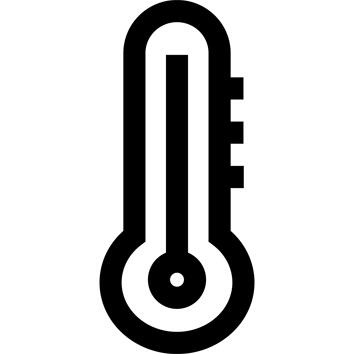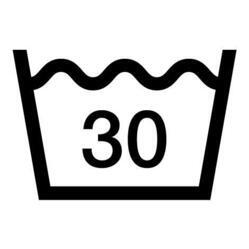Operating temperature:
All our sleeping bags display comfort temperatures tested by an independent laboratory (AITEX) and based on the European standard EN 13537 of 11/04/2002.
Comfort temperature is the lower limit at which a person in a relaxed posture is in thermal equilibrium, i.e. neither hot nor cold (determined under normal conditions of use).
Choose your sleeping bag according to these values!
However, what you need to know about temperatures :
A sleeping bag does not produce heat but retains the heat produced by the body.
These temperatures therefore depend on the person's resistance to the cold (build, fatigue, etc.), their equipment (mattress insulating from the ground, etc.), their clothing (nude, underwear, etc.) and the weather conditions (humidity, wind, etc.).
If you are tired and cold and slip into your cold, damp sleeping bag, you are likely to feel cold, whatever its qualities!
Specific to children:
Choose a sleeping bag adapted to your child's size.
In fact, the greater the volume of air to be heated, the more energy the body will expend, and the greater the risk of chilling during the night.
Similarly, a large proportion of a child's heat loss occurs through the head.
In cool weather, don't hesitate to put on a hat.
Washing your sleeping bag
We advise you to use a washing machine with a minimum capacity of 7 kg, and to zipper your sleeping bag securely.
Product design: our expertise
Our global design center Quechua is based in Passy, at the foot of Mont-Blanc in Haute Savoie.
This location makes it a real meeting place between our teams (designers, product managers, engineers...) and campers.
A great asset for designing quality products and bringing you all our expertise.
Where do our children's sleeping bags come from?
Created in our international design center at the foot of Mont Blanc in France, the sleeping bag is then manufactured and assembled by our suppliers in China, India and Bangladesh.
These are partners with real know-how in the manufacture of our sleeping bags, with whom we work closely.
This relationship of trust with our industrial partners enables us to create high-quality technical products.
Working conditions in our production facilities
We guarantee that our suppliers, often located in developing countries where our presence promotes job creation, comply with our code of conduct.
Through audits and on-site teams, we ensure that employees benefit from a quality working environment based on respect, personal fulfillment and environmental protection.









